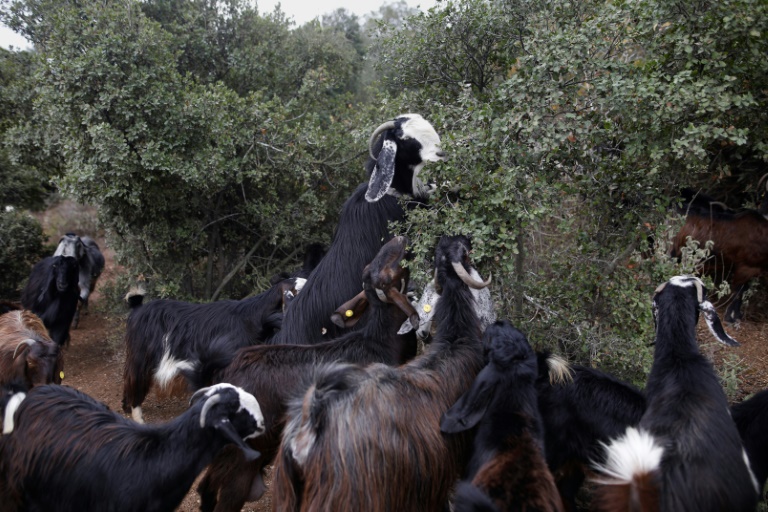PICTURES: Eid al-Fitr prayers at Nizamiye Mosque
A breed of goat limited for decades by law in Israel is expected to prosper once again in the Jewish state.
The black goat, also called the Syrian goat, has since 1950 been barred from forests and woodlands under a law that says they cause environmental damage.
On Wednesday, parliament in a preliminary reading passed a bill to repeal that legislation, on the grounds that grazing would thin out undergrowth that can fuel forest fires, said Jamal Zahalka, the Arab Israeli MP behind the push.
The government supports the bill, which should reverse the decline in the number of black goats in the country.
In the forest region of Carmel in northern Israel, the number of the goats, whose scientific name is Capra Hircus Mambrica, has fallen from 15,000 45 years ago to around 2,000 today, according to Zahalka.
He said repealing the law would “repair an historic injustice” especially for Arab Israeli farmers, who like to breed this species well adapted to the Mediterranean climate.
“An anti-goat police fought against the Arab peasants who no longer had the right to breed these animals,” Zahalka said.

Black goats, also referred to as the Syrian goat, graze near Moshav Nes Harim in central Israel’s Judean foothills
Arab Israelis are the descendants of Palestinians who remained on their land after the creation of the Jewish state in 1948.
Recent studies have shown that these goats can help reduce the risk of fire by eating flammable bushes and shrubs.
Zahalka said he had the backing of the coalition government, including the far-right Jewish Home party.
While not agreeing with Zahalka’s criticism of Israeli policy, Jewish Home ministers Uri Ariel and Ayelet Shaked helped convince the government to back the bill.
“Goats are an important factor in preventing fires,” Ariel was quoted as saying in the Israeli media. “We want to encourage grazing in the appropriate areas and times.”
Download our app